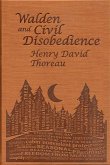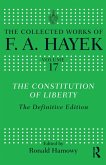In "Essays on Civil Disobedience," Henry David Thoreau articulates a profound philosophical approach to individual conscience and moral action against unjust government actions. Written in a concise and penetrating literary style, these essays weave personal narrative with political philosophy, advocating for nonviolent resistance and individual autonomy in the face of oppression. Thoreau's context, rooted in the abolitionist movement and the Mexican-American War, underscores the urgency of his arguments, as he challenges readers to consider the ethical implications of their societal obligations. This seminal work captures the spirit of transcendentalism while offering a passionate critique of institutional authority and moral complicity. Thoreau, a key figure in American transcendentalism, was deeply influenced by his own experiences of nature and solitude at Walden Pond, which guided him to question the moral fabric of society. His philosophy emphasizes self-reliance and introspection, elements prevalent in his writings, which served as a catalyst for later social movements for justice and civil rights. Thoreau's commitment to his principles and his own acts of civil disobedience, such as his refusal to pay taxes in protest of slavery, provide a personal dimension that enriches his essays. Readers seeking a profound exploration of the moral responsibilities of citizenship will find "Essays on Civil Disobedience" indispensable. Thoreau challenges us to confront the role of the individual in society, provoking critical thought about our own ethical stances and the necessity of active resistance against injustice. This work remains profoundly relevant, inspiring activists and thinkers alike to reflect on the power and duty of conscience in shaping a just society.
Dieser Download kann aus rechtlichen Gründen nur mit Rechnungsadresse in A, B, BG, CY, CZ, D, DK, EW, E, FIN, F, GR, HR, H, IRL, I, LT, L, LR, M, NL, PL, P, R, S, SLO, SK ausgeliefert werden.









